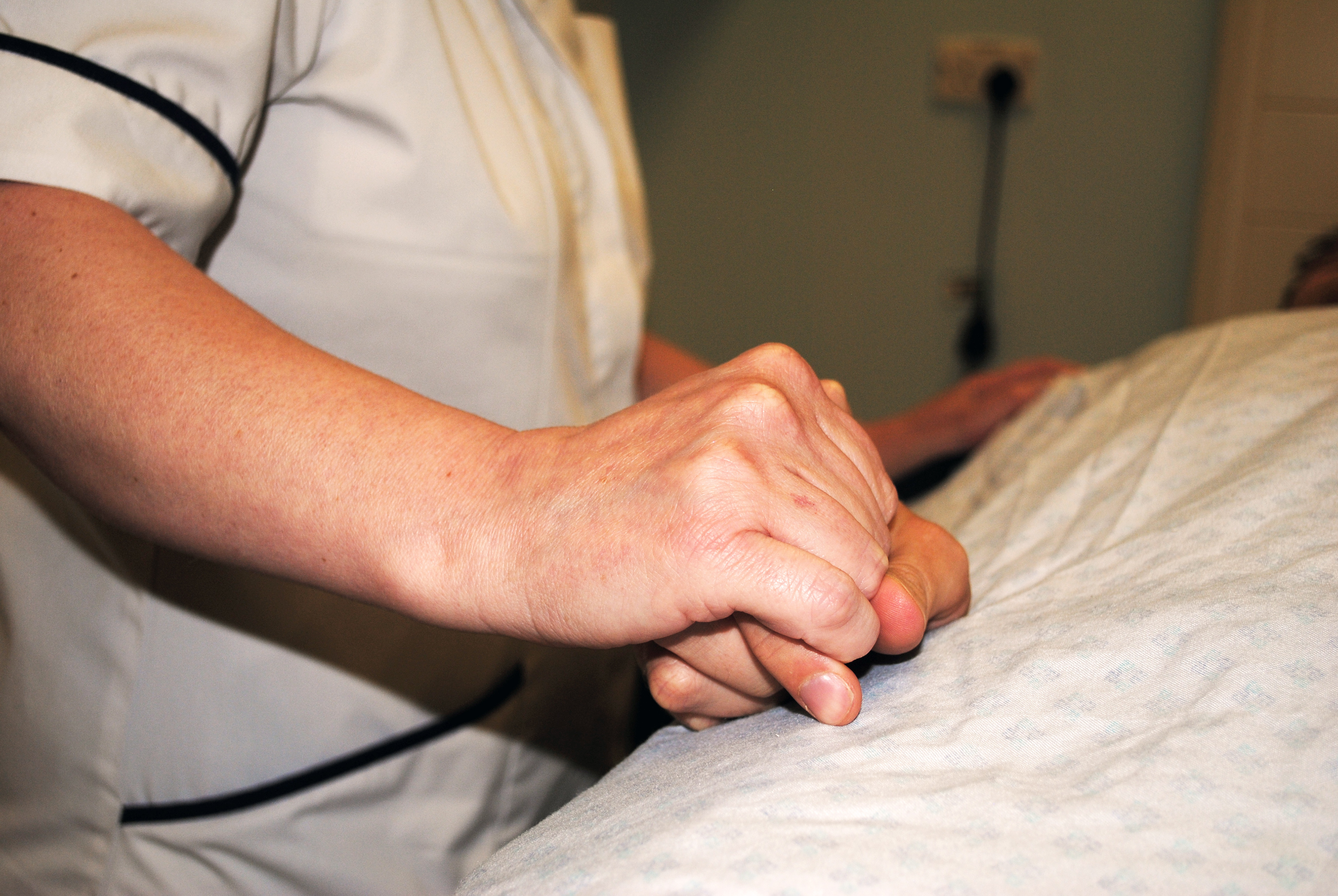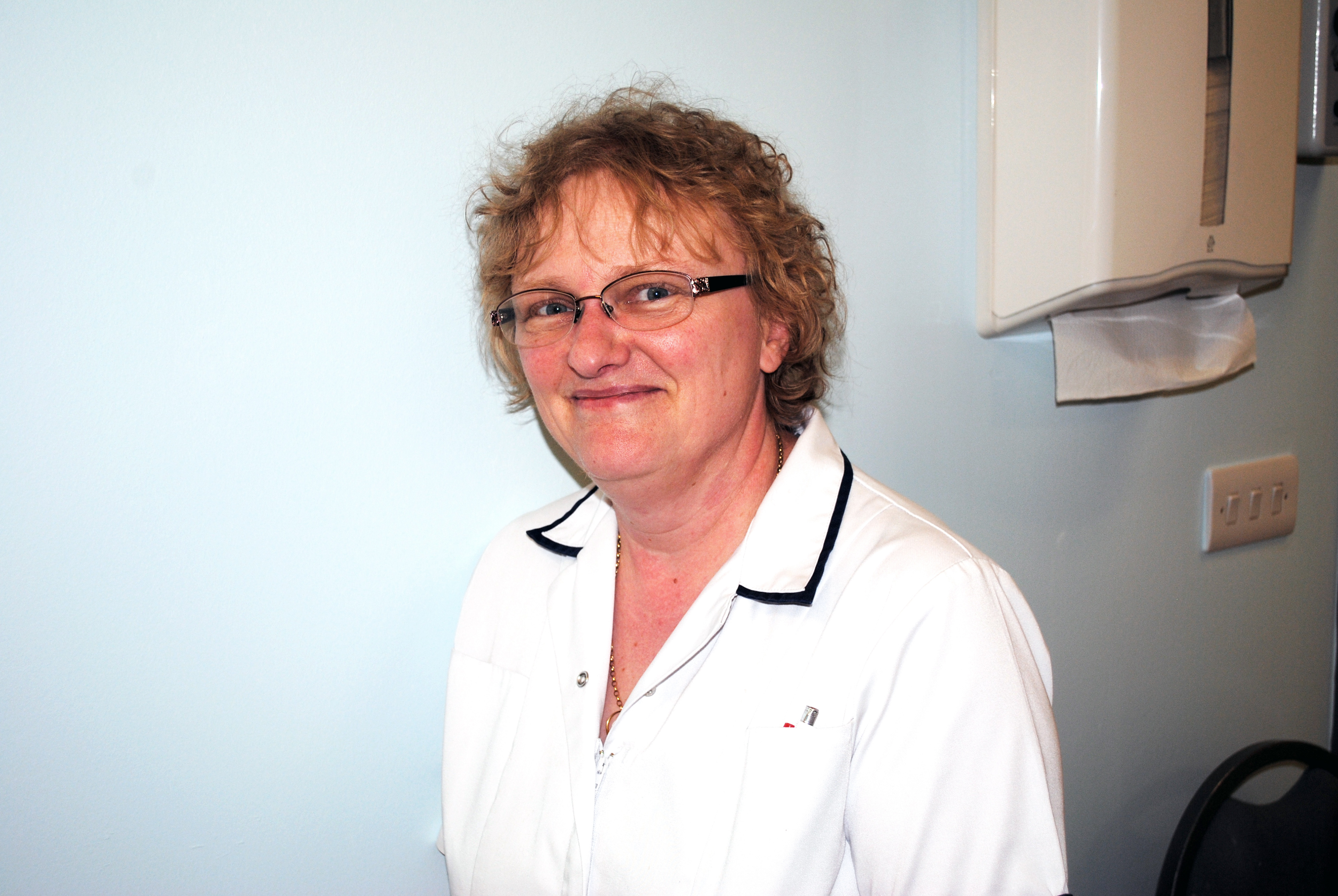Helen
"You get a real buzz when you get someone through treatment who was initially really jittery, and it is the BEST feeling."

My name is Helen, and I have been a radiographer for nearly as long as I have lived- certainly longer than I have not been! I have always been interested in the patient support side of things, and now I have an opportunity to do this full time which is fantastic.
I initially didn’t know what I wanted to do, and when I was younger I wanted to be a physio(-therapist). But then I looked around, first considering diagnostic radiography until someone said to me, "why don’t you look over towards the dark side [therapeutic radiography]", which I did, and I thought, ‘this is better, it's not all in and out as you get to know your patients’.
At first it was really, really scary when I first started, I was painfully shy and couldn’t even shout anyone out in the waiting room as I would be all tongue tied.
You’re probably looking at me in disbelief saying that now.
But now, once I have my uniform on I am Helen-Radiographer, so I can happily go and speak to anybody. If someone is having a shout and a rant, I can easily go and calm them down. I think I overcame this by originally pretending I was confident, then consequently I started to believe in myself. The more you know, the easier it is; I doubt there is a question someone could have that I wouldn’t know the answer to.
My official job title is now that long it wont fit on my business card! It is ‘Macmillan Information and Support Advanced Practitioner Radiographer’. I got into this role as there appears to be more patients who are anxious about treatment, but this may be due to an increased awareness; we are better at supporting, and patients are more open to receiving support. The people who went through the war often were frightened but would just get on with it, but now we have a new generation who will actually admit ‘I don’t like this and need support’. I actually started this role because there were not enough staff to get around all of the patients requiring support, so I started helping those initially at the lower end of the anxiety scale.
You get a real buzz when you get someone through treatment who was initially really jittery, and it is the BEST feeling. When people say ‘I don’t want to bother you but..’, actually they’re really not bothering me, in fact they’re making my day. Helping people is the crux of my job, and its what I really enjoy. But I work alongside a great team who make it all worthwhile.
We help patients through giving them information. We also go through different techniques to help people cope with things like claustrophobia. Many people have ideas about how they can help themselves, and we work alongside them to create individualised plans. One of my favourite techniques is visualisation, basically where we distract people through taking their mind of treatment. This really seems to help. I have been in a similar situation; I’ve had a panic attack so I have a great deal of empathy with these patients. As a healthcare professional you’re not supposed to do that, but everyone needs some help sometimes.
The moments that stand out to me are just the little things that patients say. There was one lady who was doing a lot better, and we had got to the stage where we could have a bit of a laugh. She said to me ‘no-one can be frightened when I’m laughing’. Another patient, who was only 4’6 turned around and said to me “im not small you know, when I stand up my feet reach the floor”- I thought this is a brilliant saying!
My funny moments; it involves an incident when we forgot to turn the intercom off. As we are switching on, we sometimes have a little chat.. and my colleague was saying how she had put some weight on and everything was getting tight. She then proceeded to say “even my knickers are tight!”. Then we realised there was an echo coming from down the corridor and we had left the intercom on!! Luckily the patient found it hilarious.
My best advice: just ASK. Everyone who works here is well and able to answer any questions. We are just here waiting, and have numerous open evenings for people to come visit. If you are ever in need of anything, you’re not putting us out or making us work harder. This is why we come into the job, because we care.


